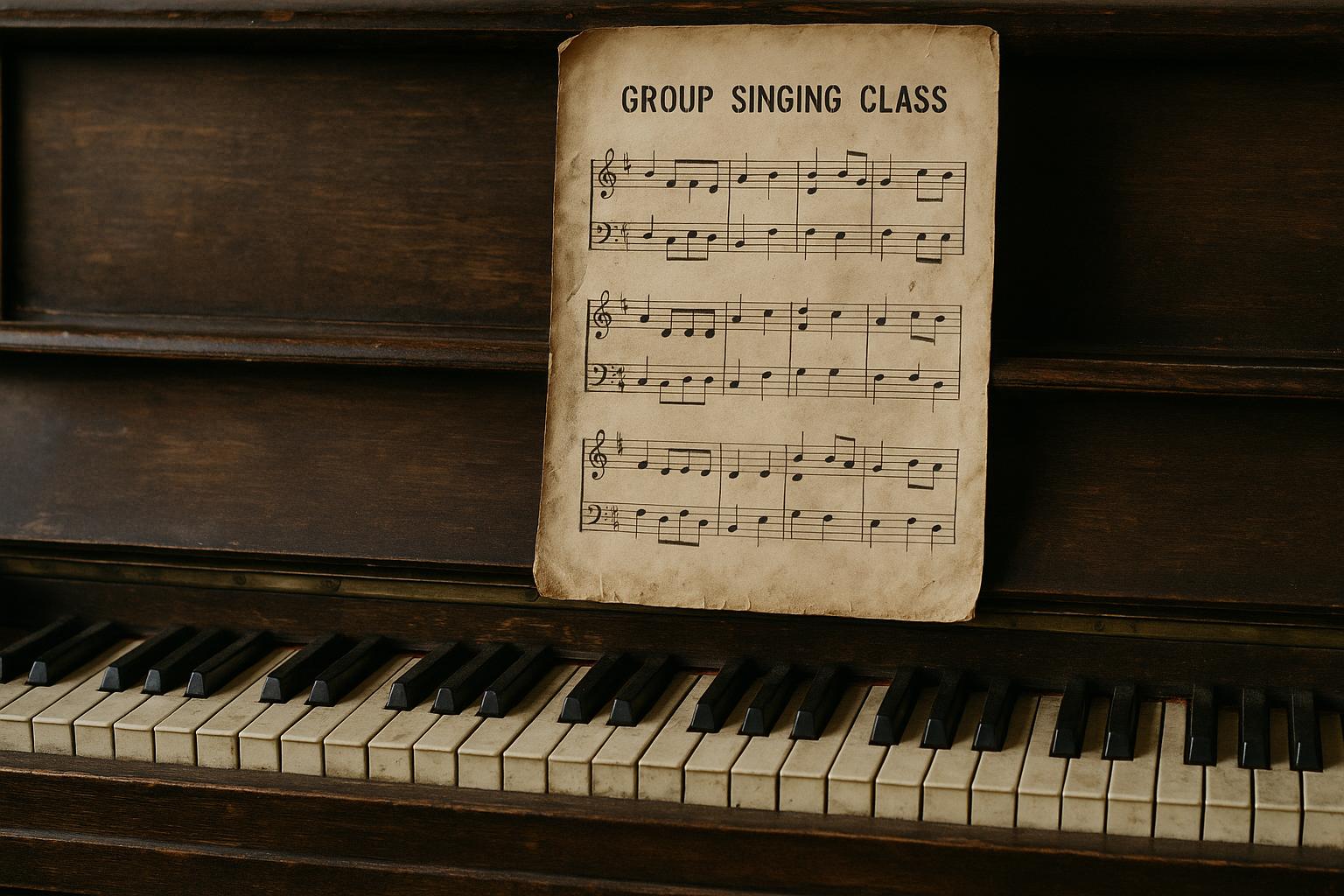Specially designed group singing classes have been demonstrated as a clinically effective and potentially cost-efficient intervention for treating postnatal depression, according to a large-scale study published recently. Originating in 2017 in south London, the "Melodies for Mums" programme now supports over 400 young mothers annually across five boroughs, with the sessions carefully crafted to address symptoms of postnatal depression through a blend of lullabies, folk, and gospel music performed in multiple languages and four-part harmonies.
Postnatal depression affects more than one in ten women within a year of childbirth, with symptoms ranging from persistent sadness and anxiety to difficulties in self-care and social withdrawal. Traditional treatments often involve talking therapies or medication, but these can be difficult to access due to long NHS waiting times—sometimes extending to six months for assessment and up to a year for individual treatment. The Melodies for Mums initiative offers a complementary or alternative option that is more immediately accessible and has been embraced by healthcare professionals recommending the programme amid strained mental health services.
The effectiveness of the singing classes was rigorously evaluated in a Wellcome Trust-funded study involving nearly 200 mothers over eight months. The research found that while all participants experienced some symptom reduction by the end of a 10-week course, those in the singing group showed continued improvement for six months afterward. The singing group also maintained higher attendance and satisfaction rates, with many participants reporting the sessions better matched their needs. This longer-term impact signifies the intervention’s potential beyond immediate symptom relief.
Researchers theorise that the benefits stem from a combination of factors: sharing the experience with other mothers facing similar challenges fosters social connection without the need for explicit discussion of personal struggles, while the act of singing itself may produce calming physiological effects. Preliminary biological data supports this, showing that participants in the singing groups exhibited steady declines in cortisol levels—an indicator of reduced stress. Additionally, the sessions encouraged stronger bonding between mothers and their babies, with musical activities being continued at home following the programme.
Various testimonies underscore the personal impact of the project. One participant described the experience as a "game changer," highlighting the sanctuary the sessions provided during a particularly vulnerable time. Another mother noted how sharing the experience with others helped her feel less isolated in what is often a lonely phase of life. The project's organisers, including Breathe Arts Health Research, emphasise that these classes are designed not to replace but to complement existing therapies, and they envision the model as broadly scalable. They have begun piloting sessions for young fathers and have been commissioned by the World Health Organization to train teams internationally.
Cost analysis from the King's College London-led study indicates that the programme's expense, ranging from £126 to £539 per mother and baby, compares favourably with other community-based educational programmes and is markedly less than group therapy or home visits. This economic viability added to proven clinical benefits strengthens the case for integrating singing interventions into routine NHS maternal mental health services.
The shift toward digital delivery of such programmes has also been explored. During the COVID-19 pandemic, an online version of Melodies for Mums was found feasible and supportive of maternal mental health, particularly helping those unable to attend face-to-face sessions. This adaptability ensures wide-ranging access and inclusivity, facilitating support for mothers in diverse circumstances and geographical locations.
Large-scale collaborative research between institutions like King's College London and University College London continues to build the evidence base for music therapy as a mainstream treatment for postnatal depression. With mental health systems under increasing pressure, such innovative, accessible, and culturally enriching approaches could provide vital support to new mothers navigating postnatal mental health challenges.
📌 Reference Map:
- Paragraph 1 – [1], [4], [5]
- Paragraph 2 – [1], [5]
- Paragraph 3 – [1], [5], [7]
- Paragraph 4 – [1], [5], [7]
- Paragraph 5 – [1], [4], [5]
- Paragraph 6 – [1], [4], [5]
- Paragraph 7 – [1], [5], [6]
- Paragraph 8 – [1], [5], [6], [7]
Source: Noah Wire Services
